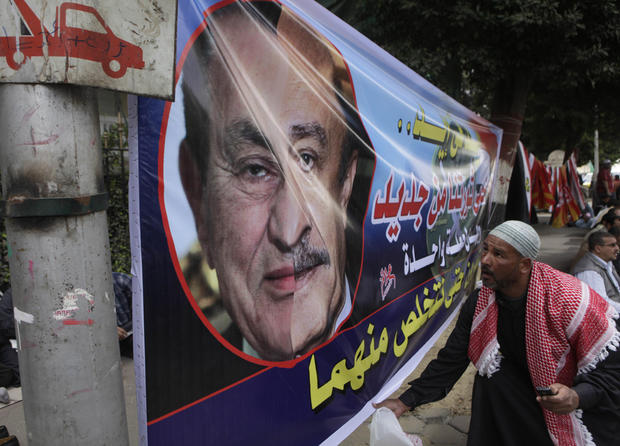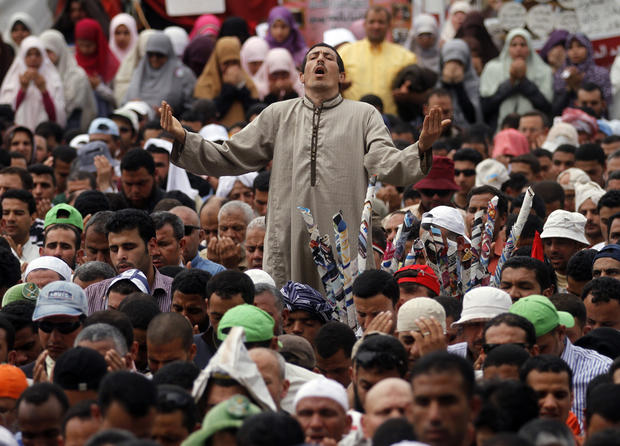Islamists protest ex-Mubarak regime candidates
(AP) CAIRO - Thousands of Islamists packed Cairo's Tahrir Square on Friday to pressure the country's ruling generals to bar Hosni Mubarak-era officials, including his former spy chief, from running in the upcoming presidential elections.
The demonstration came a day after the Islamist-dominated parliament passed a new bill stripping senior Mubarak regime figures — such as his ex-spy chief Omar Suleiman — from the right to run for office for the next 10 years. But the ruling military council must ratify the bill before it can go into effect.
The Muslim Brotherhood, along with ultraconservative Salafis and other Islamists, rallied their supporters Friday in the capital's Tahrir Square, which was the epicenter of the uprising that ousted Mubarak a year ago.
The parliament's move was part of the jostling for power between the country's top political players: Islamists who won majority of parliament seats in November elections and the military generals who took over after Mubarak.
The confrontation between the two sides escalated after the ruling council, which enjoys presidential powers, kept refusing over the past month to allow the Brotherhood to form the country's new government. The Brotherhood then accused the military of trying to sabotage its political gains by handing it a parliament stripped of real powers.
Eventually, the Brotherhood reversed its pledge not to field a candidate in the presidential elections, set for May 23-24. The group made the promise a year ago, to assure liberals and Western allies that it doesn't intent to dominate Egypt.
Ex-Mubarak spy chief warns of a "religious state" in Egypt
Egypt court suspends constitutional panel
Cairo artists sustain revolution with graffiti
The Brotherhood on March 31 announced it was fielding its chief strategist, Khairat el-Shater, as the group's presidential nominee. In what was seen as a counter move, backed by the military generals, Suleiman announced his candidacy and said in remarks published in a newspaper interview that he wants to stop Islamists from turning Egypt into a religious state.
Suleiman was Mubarak's most trusted man and was appointed as his vice president briefly during the 18-day Egyptian revolution that toppled the former president in February 2011.
In a recent interview, El-Shater told The Associated Press that he fears fraud during upcoming presidential elections would produce a "new Mubarak."
In Tahrir on Friday, chants of "the people want to down the Marshal" rang across the square, referring to the head of the ruling military council Field Marshal Hussein Tantawi. Many held banners with pictures of Suleiman and another Mubarak-era presidential candidate, Ahmed Shafiq, with their faces crossed out.
Liberals and youth movements that engineered the revolution boycotted the rally and said they are holding their separate protest next week.
The chasm between liberals and Islamists deepened over the past year. The Muslim Brotherhood initially stayed away and sometimes condemned youth street protests against the military's violations of human rights and repressive policies in detaining and trying civilians before military tribunals.
Later, the two camps collided when Islamists used their majority in parliament to pack a 100-member panel tasked with writing Egypt's new constitution with its followers, prompting the liberals and others to boycott the panel. This week, a Cairo court ruled in favor of the liberals' demand to disband the panel.

